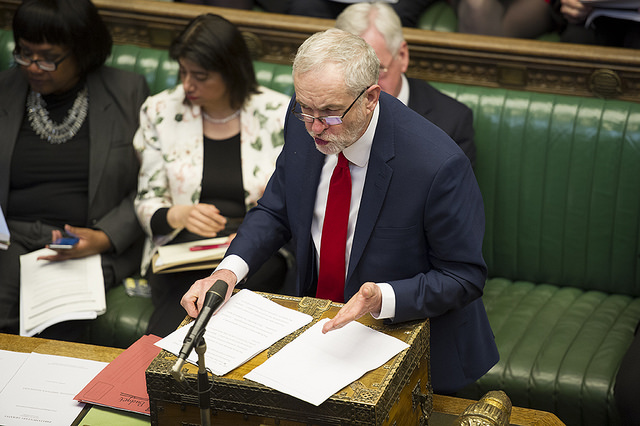Theresa May and Jeremy Corbyn had their big old weekly theatre rehearsal, sorry, comedy ad-lib session, sorry Prime Minister’s Questions (affectionately known as PMQs) in the House of Commons yesterday and they talked about some economics.
During yesterday’s back and forth Corbyn mentioned a bunch of fairly weighty organisations (including the National Farmers’ Union and the Royal Society of Arts) and said they all thought that the government’s benefits system (Universal Credit) was “flawed and failing hundreds of thousands of people both in work and out of work.”
Theresa May said this new system of giving welfare payments encouraged rather than discouraged people into work (hinting the previous system did the opposite) and it “made sure that work always pays”.
Dealing with unemployment benefits and other types of welfare is known as “public economics”. Political parties typically (evidently) have different opinions about what systems work, and what’s fair.
Referencing the government's promise that universal credit would lift 350,000 children out of poverty, Corbyn maintained that some are saying that current system will actually increase the number of children in poverty.
They both stood their corner and made sure we heard what they wanted us to hear, anyway.




